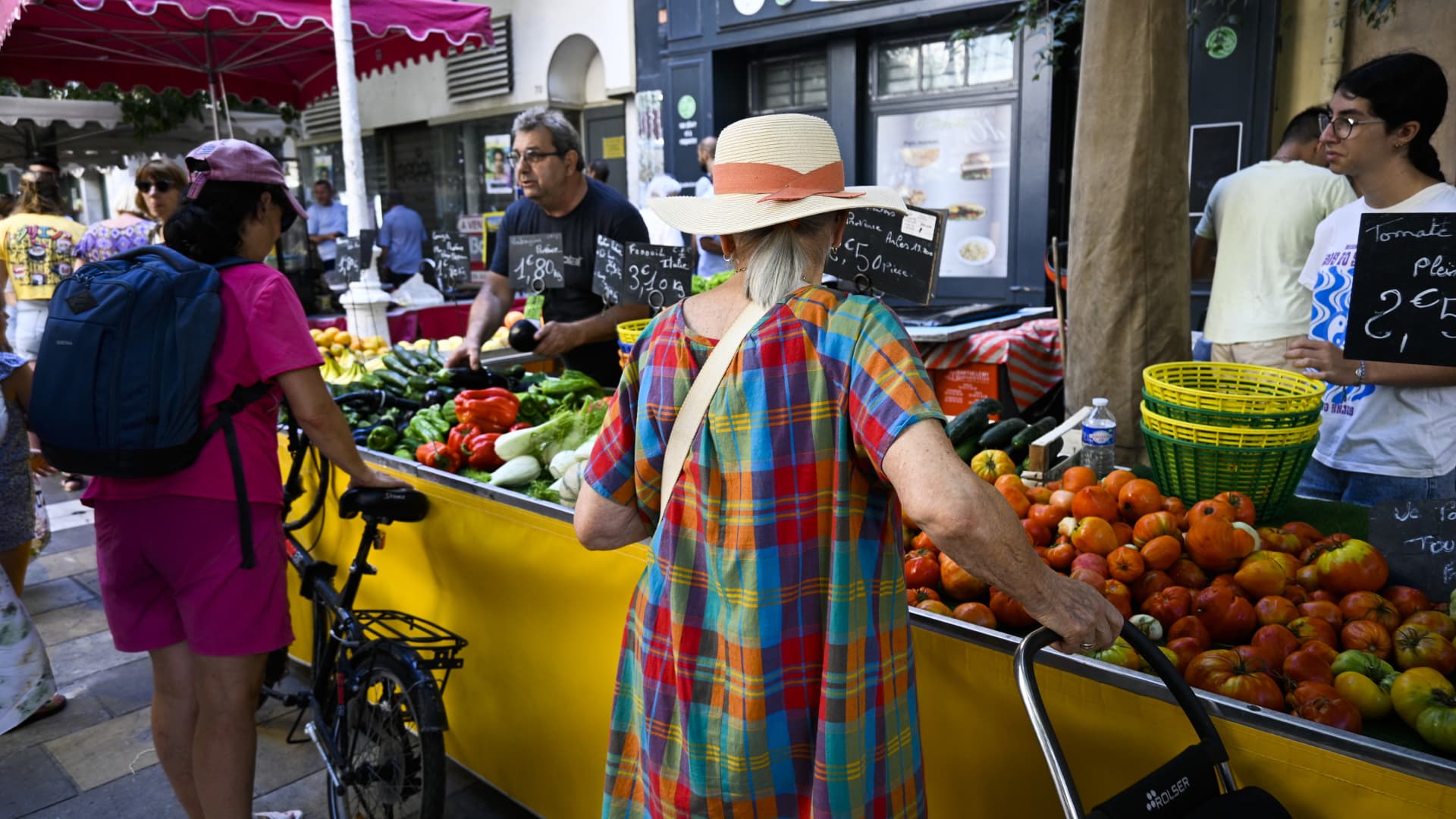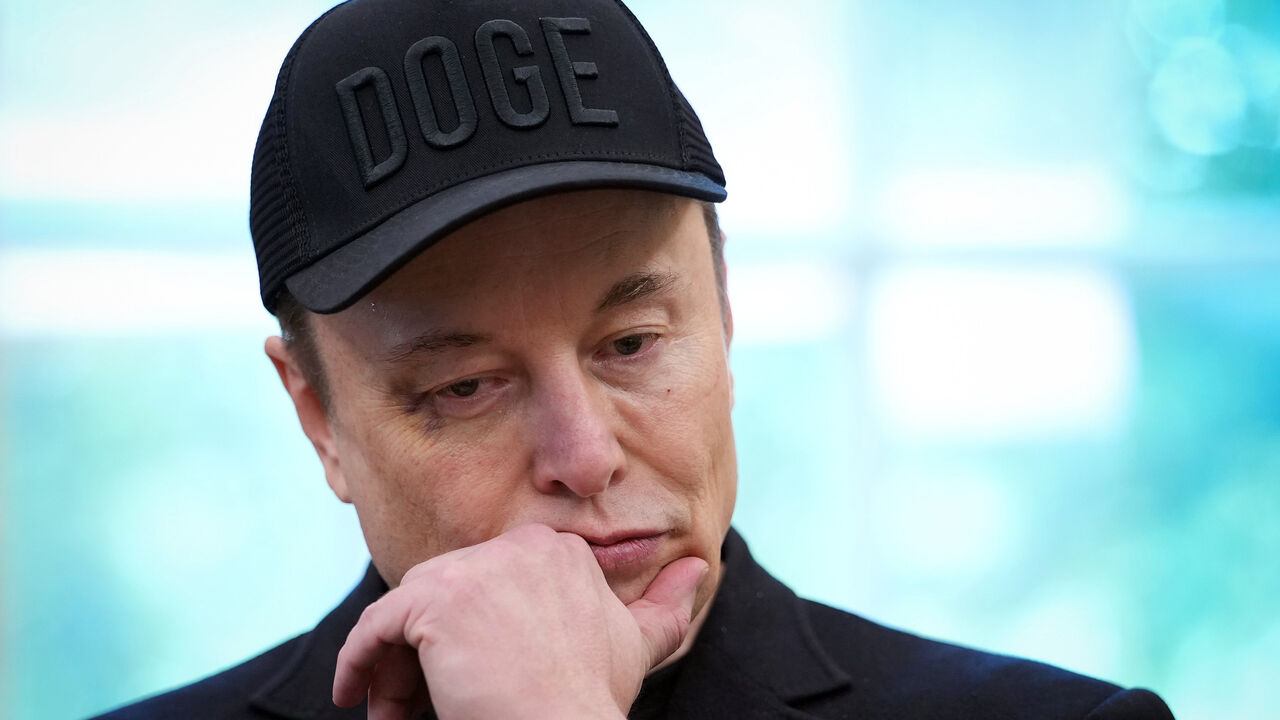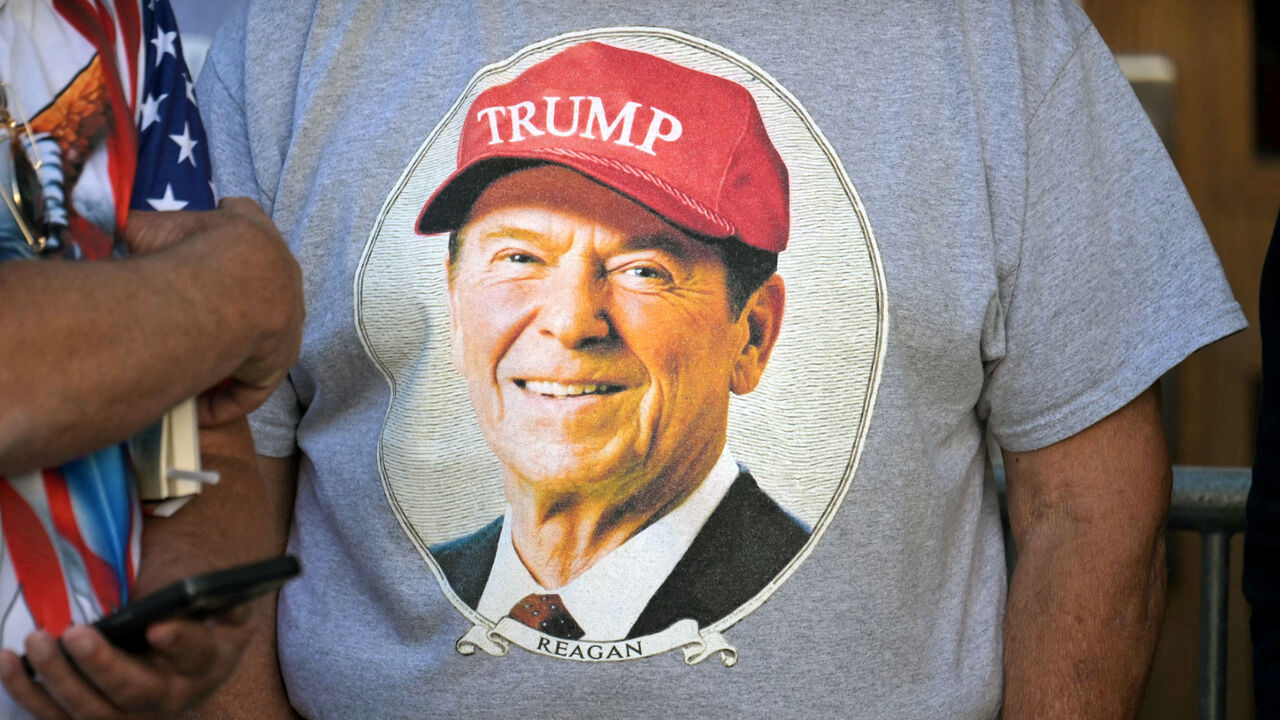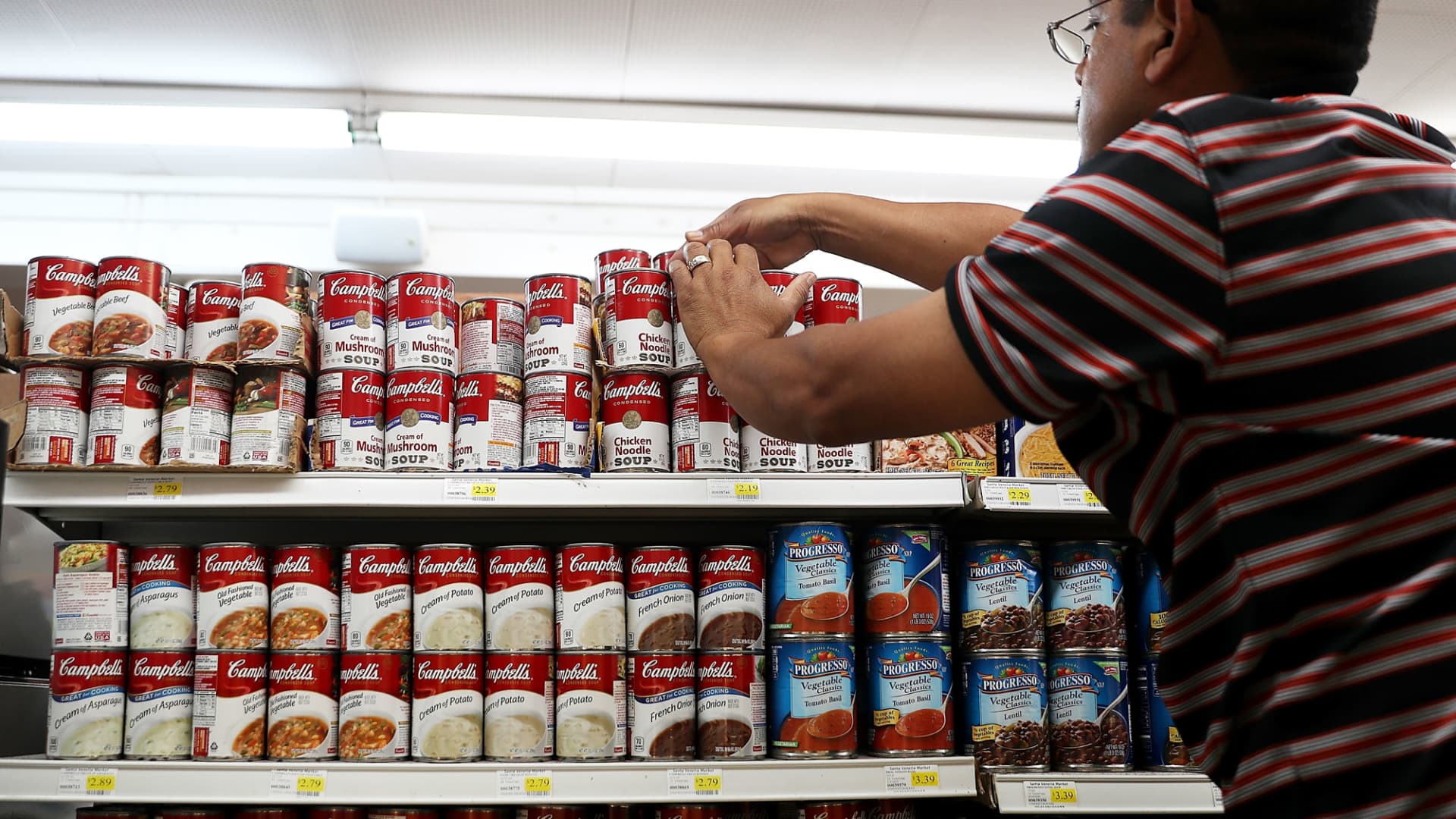Headline inflation in the euro zone unexpectedly rose to 2.6% in July, the European Union’s statistics agency said Wednesday, even as price growth in the services sector eased slightly.
In June, inflation had come in at 2.5%, easing slightly from the 2.6% of May. Economists polled by Reuters had been expecting the headline figure for July to be unchanged from June’s reading at 2.5%.
Core inflation, which excludes more volatile energy, food, alcohol and tobacco prices, hit 2.9% in July, versus a Reuters estimate of 2.8%. The figure compared with a core print of 2.9% in June.
The widely watched services inflation print came in at 4% for July, down from the 4.1% of June.
Harmonized inflation inched higher in several key euro zone countries, including in leading economies Germany and France. In both countries, inflation had been at 2.5% in June and picked up to 2.6% in July.
The inflation rates come just a day after the release of the zone’s second-quarter gross domestic product data, which the European Union’s statistics office said grew 0.3% in the three months to the end of June.
This was above the 0.2% growth that economists polled by Reuters had expected, and came even as the euro zone’s largest economy, Germany, reported a 0.1% contraction.
Investors will now weigh how the fresh data will impact the European Central Bank’s trajectory for potential future interest rate cuts. The ECB held rates steady when it met earlier this month after reducing them in June. At the time, it left open the option for another cut in September.
The ECB Governing Council said it would continue to consider the dynamics and outlook of inflation, as well as the strength of monetary policy transmission in its decision-making. It stressed that was “not pre-committing to a particular rate path.”
Julien Lafargue, chief market strategist at Barclays Private Bank, on Wednesday said that the latest inflation figures are unlikely to significantly impact the outlook for interest rates.
“While the hotter-than-expected headline inflation could be seen as a setback for the ECB, we don’t think it necessarily changes the narrative. Indeed, economic growth remains subdued — including the Q2 GDP print — which should help inflation remain on a downtrend,” he said.
The ECB could therefore still cut interest rates in September, Lafargue noted.

 Personal Finance1 week ago
Personal Finance1 week ago
 Blog Post1 week ago
Blog Post1 week ago
 Economics6 days ago
Economics6 days ago
 Economics1 week ago
Economics1 week ago
 Accounting6 days ago
Accounting6 days ago
 Personal Finance1 week ago
Personal Finance1 week ago
 Economics6 days ago
Economics6 days ago
 Personal Finance6 days ago
Personal Finance6 days ago





















